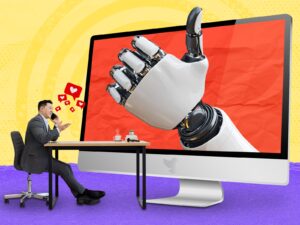
In today’s experience-driven economy, customer expectations are higher than ever, especially in the world of luxury. At a recent panel discussion, leaders from some iconic British brands, came together to unpack what truly exceptional customer experience means in 2025 and beyond.
From data-driven personalisation to deeply human connection, the conversation revealed a shared truth: technology can transform, but people still make it magic.
Jesper With-Fogstrup, Group CEO of Moneypenny, put it simply: “Good customer service should be expected—but also pleasantly unexpected. It’s about trust, reassurance, and small surprises that show you really know the customer.”
In a sector where brand loyalty hinges on feeling known and valued, this “reassuring surprise” becomes the gold standard. For Jody Wainwright of fine jeweller Boodles, it’s what they call “six-star service.” As he explained, “It’s the freedom for our team to go the extra mile, an unexpected act of kindness, a personal gesture, an intuitive recommendation. We’ve given people a blank cheque book for brilliance, so long as the customer is at the heart.”
Luxury may be personal, but it’s increasingly powered by tech. From intelligent call-handling to personalised outreach, brands are using data to anticipate needs and eliminate friction, all without losing the human spark.
Moneypenny’s hybrid model is case in point. “AI should eliminate friction, like ‘press 1 for this’, not human connection,” said Jesper. “When the conversation needs warmth or creativity, our people step in. That’s where trust is built.”
Similarly, at Boodles, technology is being introduced slowly and thoughtfully. “We’re not in a rush,” Jody noted. “When we do implement new tech, it’s about freeing our team to create magic, not replacing them.
Emma Collings of British Land offered a unique perspective rooted in physical space. “The customer experience starts before someone even steps into a shop. It’s how they feel walking into a building, the reception, the flow of the space,” she said.
For British Land, combining heatmap data, footfall insights, and user feedback allows them to design spaces that serve both brands and people.
But Emma warned of the hidden complexity behind those seemingly “seamless” moments: “It’s not glamorous. It’s deeply collaborative, across marketing, tech, property. The key is clarity: what are you trying to deliver for the end user?”
Of course, transformation isn’t without its tensions and the panel didn’t shy away from the friction points. One shared challenge is change management. “Technology initiatives often fall short when people aren’t clear on the purpose behind them,” Jesper noted. “You need to communicate the value, bring teams along for the journey, and acknowledge their concerns, especially when the changes touch their roles or day-to-day routines.”
That sentiment was echoed by Boodles. With a slower stock turnover and personal, long-term customer relationships, any digital evolution must be considered and purposeful.
What does the future hold for luxury customer experience?
Jesper believes it lies in contextual intelligence: “Imagine your car reminding you to leave early for a meeting, or your shopping assistant knowing your partner’s birthday. It’s not about gimmicks. It’s about value-added moments that feel smart and seamless.”
But the panel was unanimous: the soul of luxury is still human. “Tech helps us know more,” said Emma. “But we need people to interpret, empathise, and deliver”
Want to create experiences that feel seamless, intuitive and deeply human – even at scale? At Moneypenny, we help businesses do exactly that by blending brilliant people with clever tech. Whether it’s AI that removes friction or real conversations that build loyalty, we’re here to help you strike the perfect balance.
Talk to us on 0333 202 1005 to find out how.
Your own PA to look after calls, qualify leads, book appointments, and lots more.
Discover >Our team of PAs capturing every new enquiry and qualifying them during the call.
Discover >